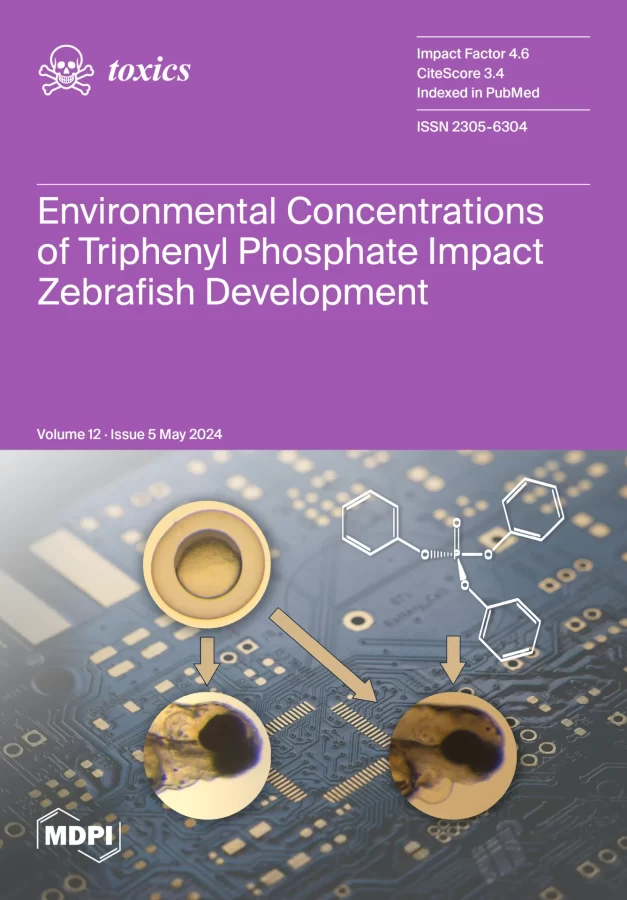Larissa Williams examines toxicity levels in the aquatic environment
Associate Professor of Biology, Larissa Williams, has published a new “Editor’s Choice” and “Featured Article” in the Journal Toxins, revealing that the low levels of pollutants in our waters has more of a detrimental effect on both the aquatic life living in those waters and the humans that consume that water, than previously understood. A common flame-retardant and plasticizer in use since the Environmental Protection Agency (EPA) banned the previously utilized and highly toxic polybrominated diphenyl ethers (PBDEs) from commercial use in 2009, triphenyl phosphate (TPhP) is frequently used in such common products as hydraulic fluids, electronic equipment, glues, nail polishes, and casting resins given it’s flame retardant properties. Given its widespread use, TPhP is frequently detected in fresh and marine environments and in this paper, is shown to adversely affect the growth of aquatic organisms. The development of larval zebrafish (Danio rerio) from waters with environmental significant levels of TPhP were found to be impacted at both the molecular and phenotypic (observable) levels with a loss of body length and pericardial edema.
Zebrafish were selected, “since TPhP may particularly accumulate in aquatic vertebrates, its impacts on these species are critical to determine. Zebrafish genetic and metabolic pathways are highly conserved with humans and other vertebrates, and as such these impacts are likely to be transferable to TPhP exposure in various vertebrate species and to humans” according to the authors. Clearly, studies such as this are vital to fully understand the impact of industrial compounds on the environment, and ultimately the unintended consequences on humans and the animals around us.
For this paper, Larissa worked with three talented Bates students in her lab in Bonney Science Hall, Ben Schmandt ‘22, Mfon Diduff ‘24, and Gabrielle Williams, ‘23. For each of the three, their insightful work in the lab has carried them forward after graduation. According to a Bates News story on this paper, Ben is currently a research associate in the Claussnitzer Lab at the Broad Institute, Mfon is a research technician at Columbia University Irving Medical Center, and Gabrielle is now in veterinary school at Washington State University.
*Schmandt B, *Diduff M, *Smart G, Williams L. (2024). Environmentally-relevant concentrations of triphenyl phosphate (TPhP) impact cardiac development in zebrafish. Toxics, 12: 368. doi: 10.3390/toxics12050368.


